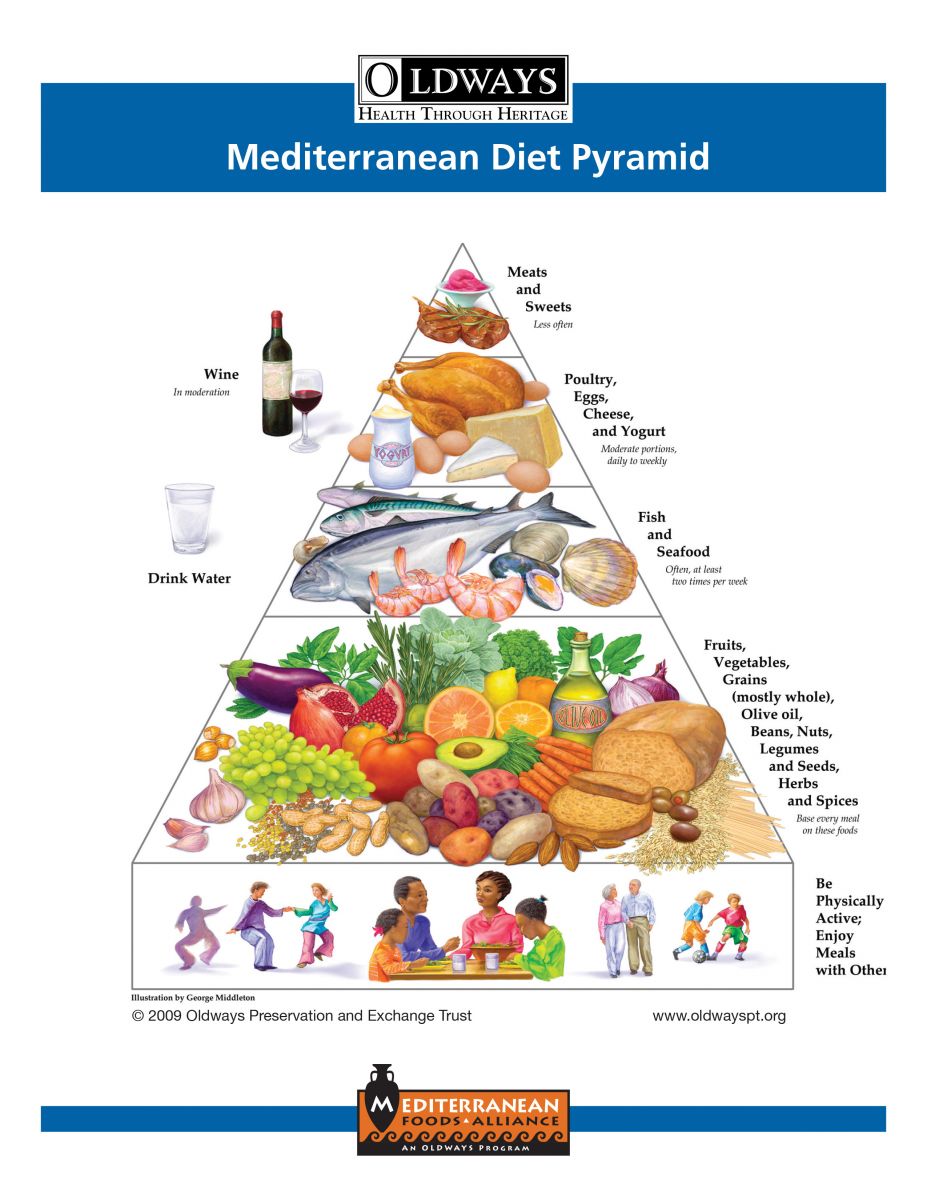Share This
This blog was originally published on US News & World Report’s Eat + Run blog. See the original post here.
In the 1950s and 60s, when Americans were first embarking on a decades-long, love-hate relationship with highly processed convenience foods, Mediterranean villages (like those in Greece and southern Italy) were being studied for their low rates of heart disease by the bespectacled and somewhat misunderstood cardiologist Ancel Keys. Nutritional epidemiology has evolved by leaps and bounds since Ancel Keys’ time, yet present-day communities that still adhere to a traditional Mediterranean diet (in places like Sardinia, Italy and Ikaria, Greece) are being hailed as 21st century “blue zones,” pockets around the world where people live the longest.
Although new diets have become as fickle as fashion trends, the Mediterranean diet – which features fruits, vegetables, whole grains, fish, olive oil, herbs, spices, nuts, seeds and some traditionally produced dairy – has stood the test of time, continuing to build up its accolades amongst the nutrition research community. From heart disease and stroke prevention, to healthy weights and healthy aging, the Mediterranean diet is linked with a seemingly endless list of potential perks. Many aspects of this wholesome eating pattern are thought to help explain its advantages, but perhaps the most crucial characteristic is its focus on whole foods rather than nutrients.
By shifting the emphasis from “fat” to olive oil and fish, or from “carbohydrates” to whole grains, fruits and vegetables, adherents of a Mediterranean-style diet are free to seek out wholesome foods in the way that nature intended. This approach closes a deceptive dietary loophole, in which manufacturers simply fortify their products with one nutrient or another, without actually addressing the quality of the food supply. Additionally, the Mediterranean diet is anchored by a sound base of cultural evidence, as people have been living these principles for hundreds of years. In fact, the Mediterranean diet is recognized as an item of intangible cultural heritage by the United Nations Educational, Scientific and Cultural Organization.
While the health benefits of the Mediterranean diet were initially studied more than 60 years ago, the Mediterranean diet wasn’t widely known outside the academic community until 1993, when Oldways partnered with the Harvard School of Public Health to create the first Mediterranean Diet Pyramid. In order to raise awareness of the new kid on the culinary block, Oldways hosted a series of educational conferences on the Mediterranean diet, and brought medical students, journalists and chefs on trips oversees to study this eating pattern in situ, so they could spread the knowledge of this delicious and nutritious diet throughout the United States.
Using the lavishly illustrated Mediterranean Diet Pyramid as a guide, Oldways has helped the Mediterranean diet reach icon status, teaching consumers and health professionals alike that good health and good food go hand in hand. After all, hardly anyone today could picture a healthy diet without olive oil, leafy greens, hummus or at least some hint of Mediterranean flair.
If it’s gourmet meals and good health that you’re after, then toss that fad diet book, trash the overly processed foods in your pantry and sit down with friends at a Mediterranean-style feast. Browse our extensive collection of recipes, health studies, and common sense advice so that you, too, can discover the tastes and traditions of the Mediterranean diet.
Try making our Spicy Salmon recipe tonight and jumpstart your Mediterranean diet and lifestyle! Find the recipe here.






Add a Comment